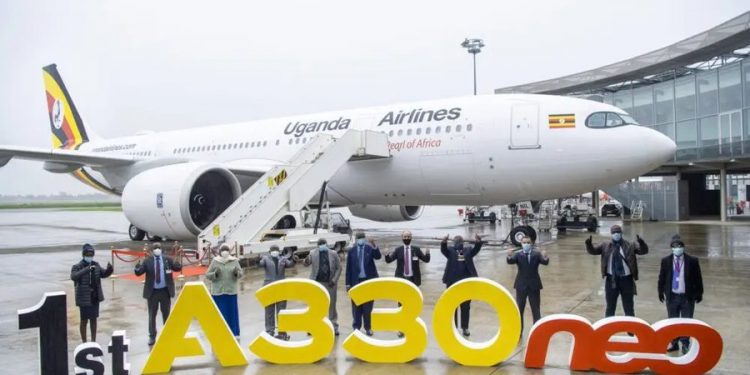A fresh special audit has blown the lid off shocking fuel mismanagement at Uganda Airlines, revealing how millions of taxpayer dollars may have gone up in smoke through undocumented payments, phantom uplifts, and dubious penalties linked to its supplier MixJet.
The report, compiled by the Office of the Auditor General and tabled in March 2025, shows that between 2021 and 2024, Uganda National Airlines Company Limited (UNACL) paid out USD 7.2 million (about Shs 26.5 billion) for aviation fuel without supporting documents such as aircraft tech logs, supplier receipts or delivery vouchers. Auditors warn that paying fuel invoices without a proper paper trail exposes the airline to fraud, double billing, or even payments for fuel never delivered.
Worse still, the probe uncovered 761 instances where the billed fuel volumes exceeded the maximum tank capacities of the aircraft, amounting to USD 2.86 million (Shs 10.5 billion) in excess charges. In layman’s terms, Uganda Airlines was billed for fuel its planes could not possibly carry.
The scandal deepened with the discovery of 215 “ghost” invoices from MixJet at Entebbe.
While 483 invoices were issued, only 266 flights actually departed, leaving a staggering mismatch that suggests either duplicate billing or outright fraud. The auditors also flagged USD 1.22 million (Shs 4.5 billion) worth of invoices recorded in the airline’s books but missing on MixJet’s supplier statements, including one bizarre entry charging fuel for an aircraft Uganda Airlines does not even own.
As if that wasn’t enough, MixJet also billed USD 1.15 million (Shs 4.2 billion) in unexplained penalties, with no breakdown or contractual justification.
The auditors recommend that these charges be contested immediately, branding them as unsubstantiated.
Even on a micro level, irregularities appeared. Variances between aircraft tech logs and supplier receipts, though small in gallons, point to weak reconciliation systems that can easily mask larger fraud.
The Auditor General’s report prescribes urgent reforms: enforce “three-way matching” (tech log, supplier receipt, invoice) before paying a single shilling, deploy an automated reconciliation system tied to flight records, and recover unsupported payments from MixJet and other suppliers.
This is not the first time Uganda Airlines finds itself in the dock over questionable practices.
In 2021, Parliament’s watchdog committee raised red flags over procurement scandals and nepotism in the carrier’s leadership, while in 2022, management admitted to investigating fraud involving staff and overseas transactions flagged to Interpol.
These new revelations suggest fuel procurement has become the latest cash-draining loophole.
For taxpayers, the stakes could not be higher. Uganda Airlines, revived with patriotic fanfare in 2019, has consistently posted losses while relying on state bailouts.
Now, with billions of shillings in fuel payments unaccounted for, the airline risks not only public trust but also possible legal action from suppliers and international regulators.
Unless Uganda Airlines swiftly recovers the Shs 26 billion in undocumented fuel payments and tightens its controls, this “MixJet fuel scandal” may cement the carrier’s image as a national symbol of mismanagement rather than pride.
No official from Mixjet was available for a comment.
Shakira Rahim Lamar who speaks for Uganda Airlines said she would revert when contacted about the matter.





